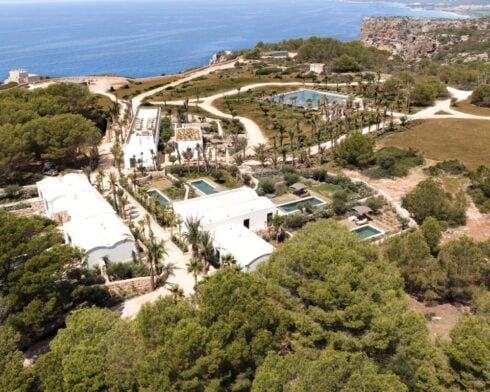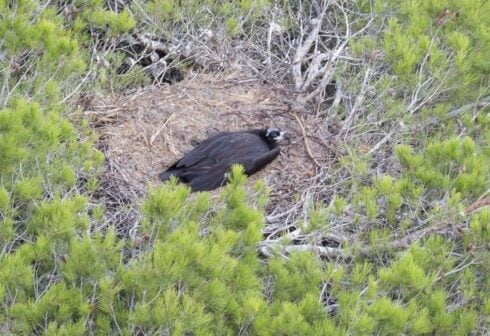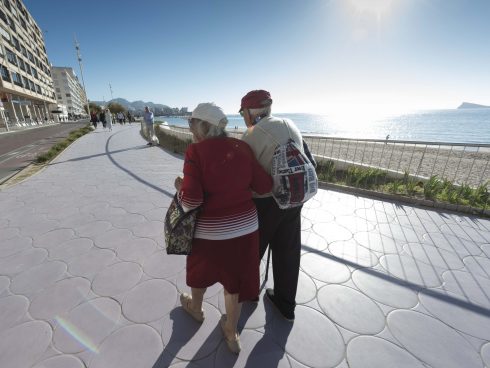In a first guest column for the Olive Press, regular reader and commenter Mark Leonard took the time to write about his experiences in the Austrian Alps.
Are you an avid Olive Press reader? Got lots of ideas and comments when you read our articles? Got a hankering to write your own guest column for the Olive Press? Get in touch: walter@theolivepress.es
SPAIN ranks as the second most visited country by international visitors in Europe – behind only France.
Tourism has traditionally been regarded as one of the main drivers of the Spanish economy, and ever more so today.
While the sector accounted for 12.3% of Spain’s GDP in 2023 – worth an estimated €186.6 billion – the rapid expansion of the economy is expected to see that proportion grow.
A recent report by the World Travel & Tourism Council (WTTC) suggests this year the figures could balloon to €260.5 billion – equivalent to almost 16% of the national economy.
Despite this economic bonanza, what has changed today is the view that the provision of accommodation for tourists has increasingly hoovered up the housing stock, resulting in an acute shortage for Spanish citizens.
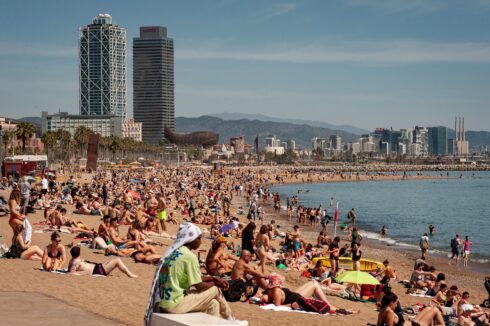
When demand exceeds supply, prices rise. When prices rise, all things being equal, goods and services become less affordable for more citizens.
Lessons from abroad
Having just returned from a few days in the west of Austria, I wondered if I might come across symptoms of a similar nature to those that exist in Spain, with demonstrations against tourism, for similar reasons.
I didn’t. Or at least not quite for the same reason, although what I did find also concerned housing. But no demonstrations, just disquiet in some locations.
Liechtenstein borders Austria in the west. Liechtenstein is a wealthy principality, with a very high standard of living – meaning it is an expensive place to visit and live.
The legal currency in Liechtenstein is the Swiss Franc – Switzerland also borders the Principality of Liechtenstein – so you get my meaning about being ‘expensive’!
I learned that around 8,000 Austrians from the Austrian border town of Feldkirch – that’s around 20% of the entire population – cross into Liechtenstein daily for work, where salaries are significantly higher.
This has translated into a housing boom in Feldkirch.
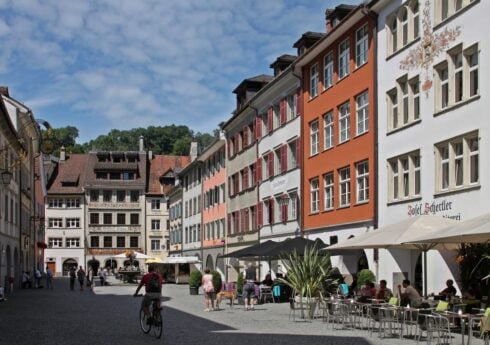
But it is this fifth of Feldkirch residents making bank from their jobs in Liechtenstein with their higher disposable income that are seen as being responsible for pricing out their less well off fellow citizens in the property market – not tourists.
Particularly affected are the central parts of Feldkirch, where property prices have become unaffordable for the majority, causing them to move out of the city into nearby villages and towns.
It is an issue similar to that in Spain, but with two major differences.
In Feldkirch it is not ‘tourists’ who cause the problems and there is no shortage of property – it’s just very expensive if you want to live in the town centre.
But one significant difference is apparent in Spain: Social housing.
READ MORE: Non-resident property owners in Spain can now save thousands and even claw back overpaid tax
What Austria gets right
Austria prioritises the construction of new, affordable housing units, which creates a large stock of both public and social housing – the latter, is developed and managed by the Limited Profit Associations, often with government subsidies.
According to Housing Europe, affordable housing provided by Austrian limited-profit housing associations has positive impacts not only on their tenants and the economy – but it also influences prices in the housing market more widely.
While the non-profit housing system in Austria costs taxpayer money, it is a good investment for three reasons.
It reduces the amounts needed for household subsidies, shifts resources from high-income landlords to more construction and economy-wide consumption, it is a net gain for the economy.
As much as 24% of the total housing stock in Austria is designated social housing, whereas in Spain, the percentage drops to 2.5%, which is significantly below the EU average of 9%.

Additionally, most social or publically protected housing, through the Vivienda de Proteccion Publica, is for owner occupancy, not long term rental.
A BBVA report details how the public budget for housing remains relatively low despite an increase since 2021, largely aimed at social rental housing.
Since 2021, only about 13,000 subsidised homes have been started per year compared to 70,000 per year between 1995 and 2010.
Not all is lost, however, as the Spanish government is actively working to increase the supply of social housing through a strategic plan centred on public intervention, innovative construction methods and increased regulation.
According to the Government, the plan envisages the construction of 43,000 homes for social renting at affordable prices as part of a total of 180,000 units.
While this is a positive start, given that the estimated shortage of public housing is 600,000 homes, it looks like it will take a long time to ease the shortage.
In admitting that Spain has only 2.5% of public housing, far behind member states such as France (14%) and the Netherlands (34%), President Sanchez has recognised the challenge ahead.
Click here to read more Property News from The Olive Press.





